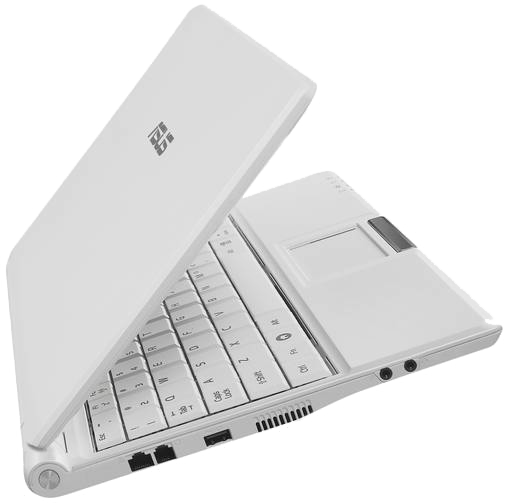Netbooks are small devices primarily designed for wireless communication and access to the internet. The computers are small, offer a modest range of features and are attractively-priced – costing in the region of $250.
And they’ve been selling in droves.
Sales of Netbooks such as the EeePC (pictured) and the Acer Aspire One have been one of the few PC sales successes during the global economic downturn – especially in Europe and Asia. But are these machines selling because just because they’re cheap? I’m not so sure.
Netbooks are the embodiment of the realization that the vast majority of computer users don’t actually need anything more. As more and more of the software that we use moves away from the desktop and is offered as so-called ‘cloud’ services over the internet, why bother spending any more? With a fast wireless internet connection, one can use Google Docs, Photoshop Express, Flickr, YouTube, and 1001 other services, available for free or very cheaply, over the web. Many consumers find that a Netbook is more than sufficient for their needs.
So, are conventional computers destined to become niche products only required for processor-intensive applications such as video-editing and 3D rendering? I very much doubt it.
Netbooks are not designed as replacements for more expensive, more powerful computers. Rather, they sacrifice computational horsepower and the ability to run complex software in order to reach their low pricepoint. Moreover, many people buy Netbooks because they don’t see the devices as being laptop computers at all. Rather, Netbooks seem to be fulfilling a demand for a device that can access the internet, offer a better email experience and utilize web-based applications easier and faster than with a mobile phone.
The Netbook is actually filling a new market demand: a convergence of some features shared between laptop and cellphone. However, most Netbook manufacturers haven’t realized this. Branding and positioning such devices along the same lines as laptop devices helps reinforce the confusion as to what the devices actually are. Most consumers who buy a Netbook and expect comparable performance to even the most modestly-configured laptop computer are likely to be greatly disappointed with their purchase.
Yes, a Netbook has a screen and keyboard. But that doesn’t make it a laptop.

